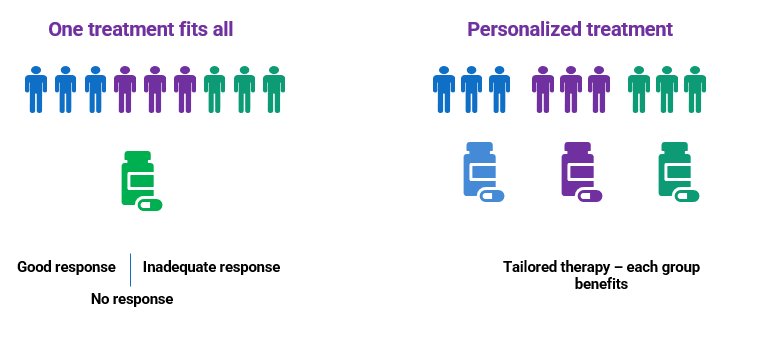Author: Satish Kumar Jayasekar, Associate Director, Clinical Data Management
Clinical trials are evolving into personalized endeavors, seeking to align treatments with specific genetic or molecular profiles. This shift necessitates smaller, more focused patient cohorts and specialized expertise, turning the landscape into a competitive terrain for all researchers involved. Thanks to digital technologies and ongoing transformations, the field is experiencing notable growth. This blog offers a concise summary, drawing inspiration from diverse sources of knowledge and discussions with like-minded colleagues.

Rising demand for data science and decision-making:
Precision medicine adopts a tailored approach that considers various factors, including diversified data sources, data acquisition, understanding genetic patterns, and analytics. This complexity introduces challenges for researchers, as they strive to overcome issues related to the interoperability of data beyond clinical dependencies.
Managing data security:
While precision medicine trials may appear similar to traditional ones, they involve a plethora of sensitive personal data from participants. This underscores the importance of implementing robust processes to safeguard patient privacy, obtain informed consent, and ethically use the collected data.
Greater technologies, greater investments:
The involvement of digital technologies in decoding genomic sequences, devising unique study designs, and ensuring the effectiveness of targeted therapies results in significant investment requirements. The challenge lies in making these advancements accessible to the broader population, overcoming technological barriers. The unpredictable nature of investments and planning, often surpassing those of traditional clinical trials, adds another layer of complexity.
Articulating clinical significance at the patient level:
Modern tools, while aiding in data organization, still contribute to a low confidence level in analyzing biomarkers in conjunction with genomic sequences. This gap in reliability and usability poses challenges in selecting and implementing technologies that can provide consistently reliable results.
In conclusion:
Maintaining a hopeful outlook, I believe that successfully integrating technological advancements with ethical data usage is on the horizon. Our progressive approach toward innovation and inclusivity aims to extend the benefits of tailored medical solutions to a wider population. The challenge lies in balancing technological leaps with ethical considerations. This blog marks a small step toward cultivating an inquisitive understanding of our journey into uncharted waters.
To talk to our precision medicine data experts, write to us at hello@algorics.com